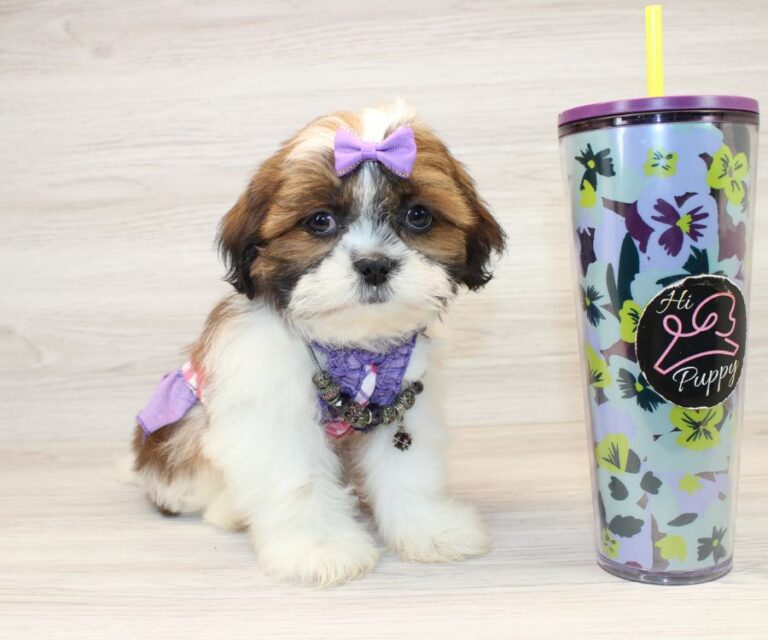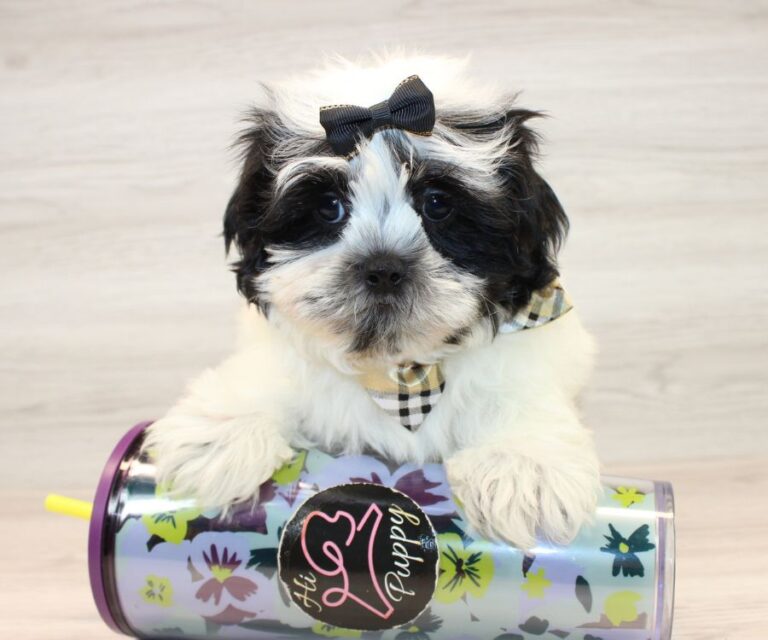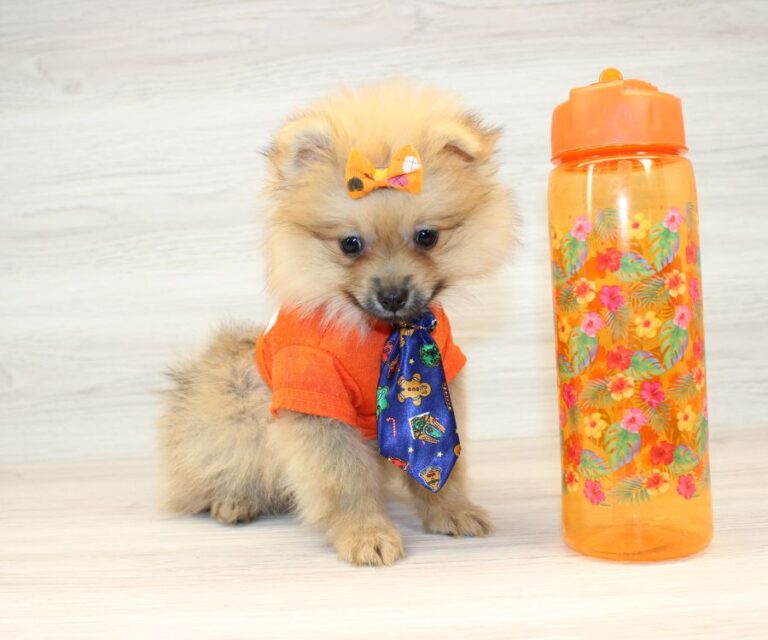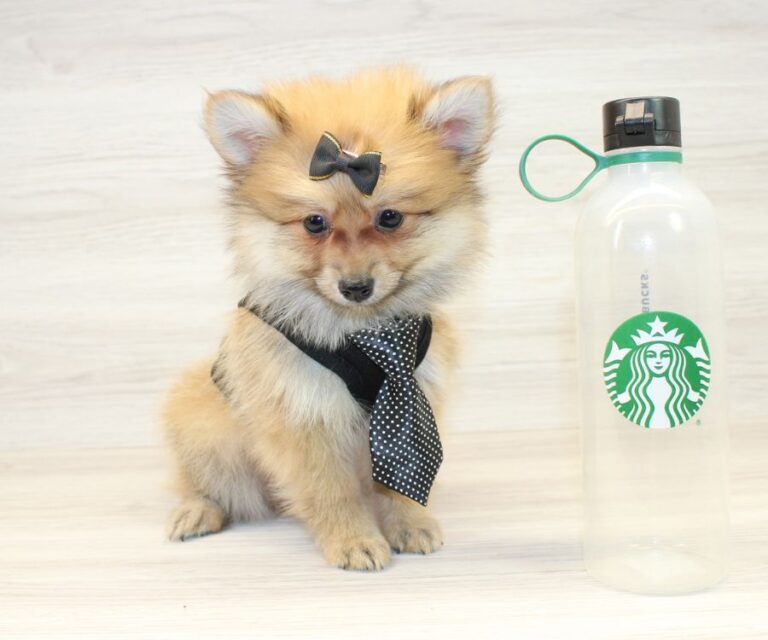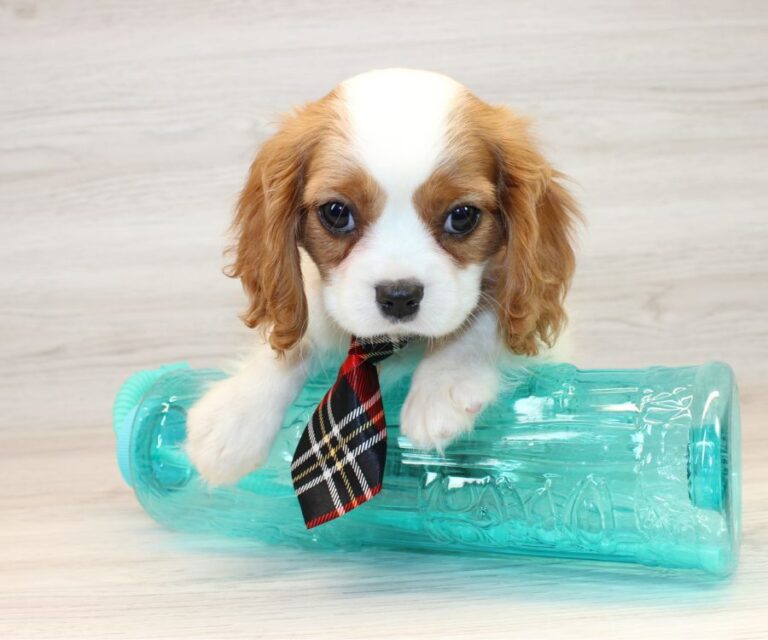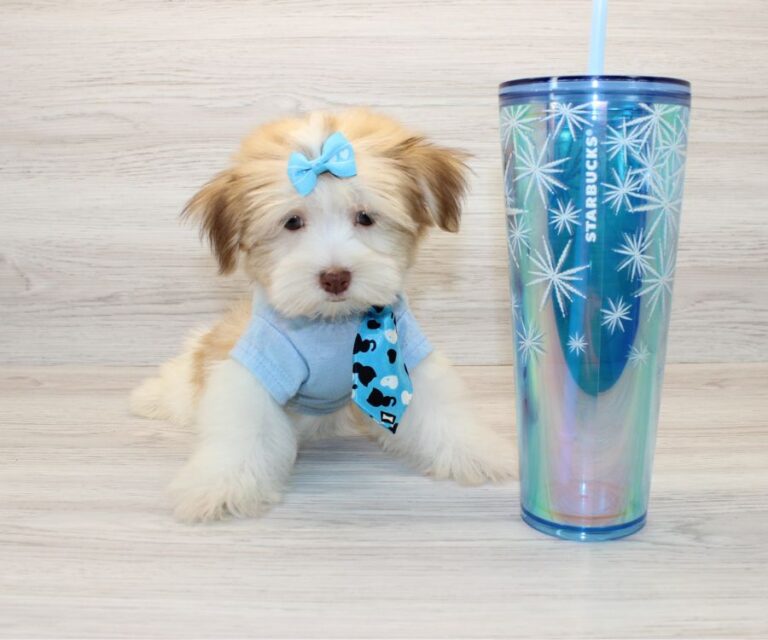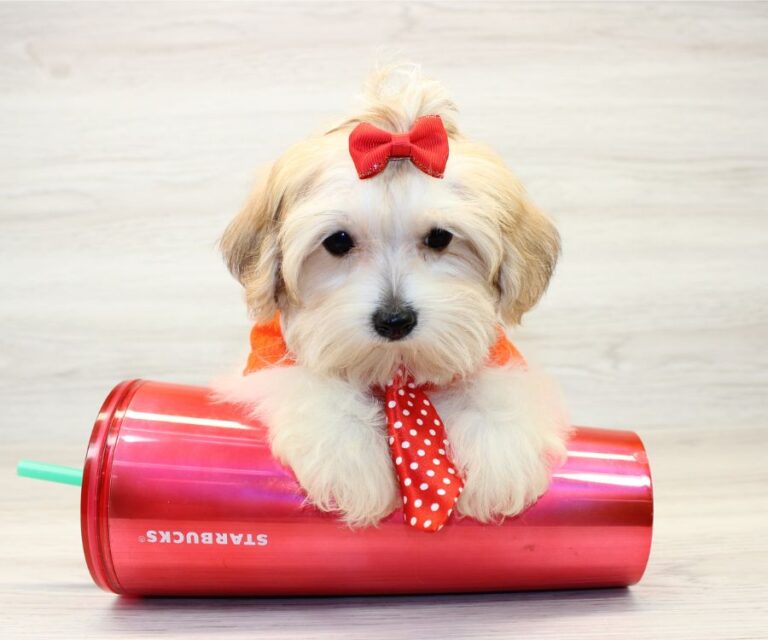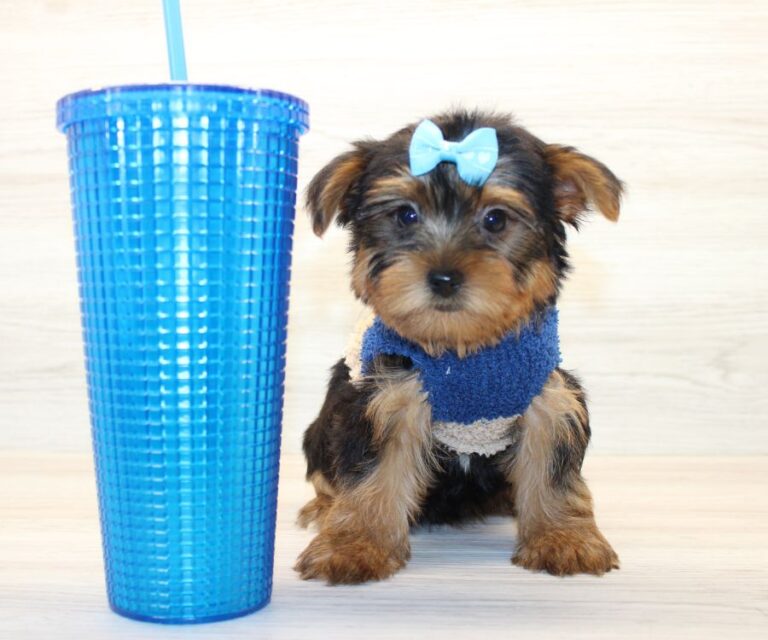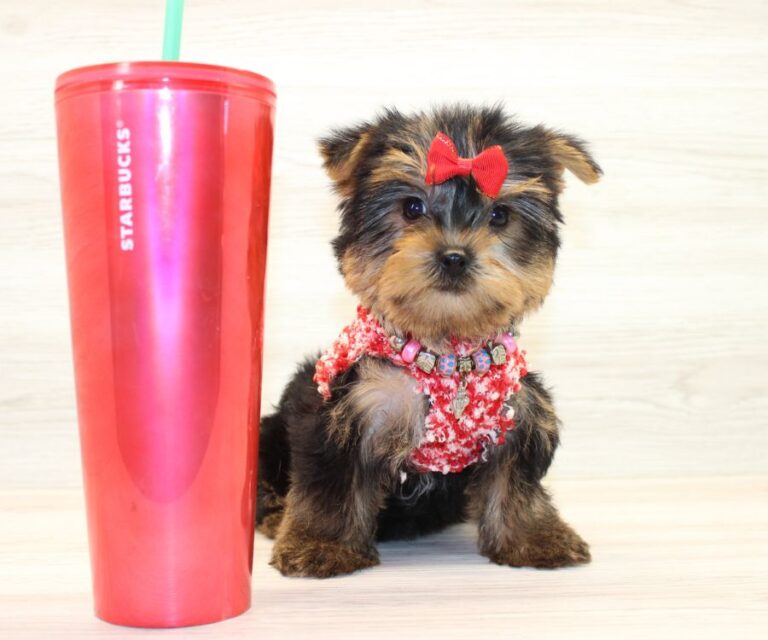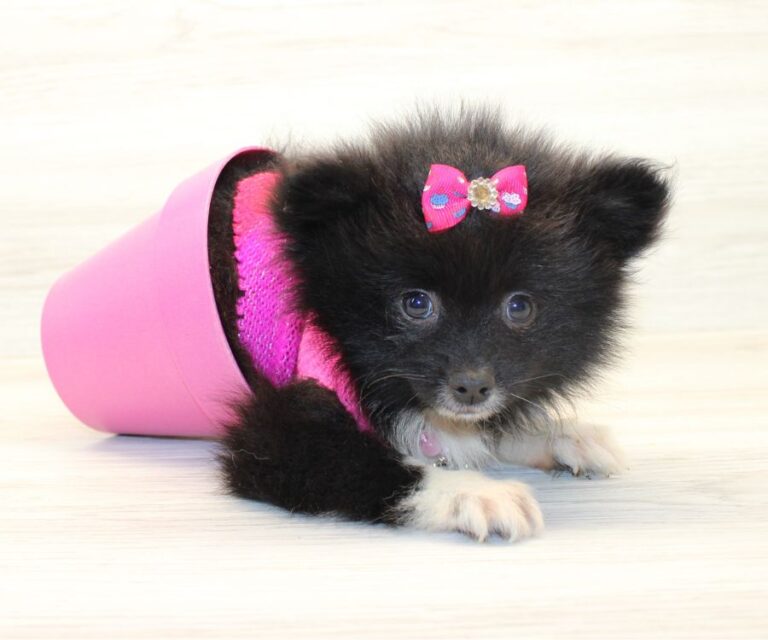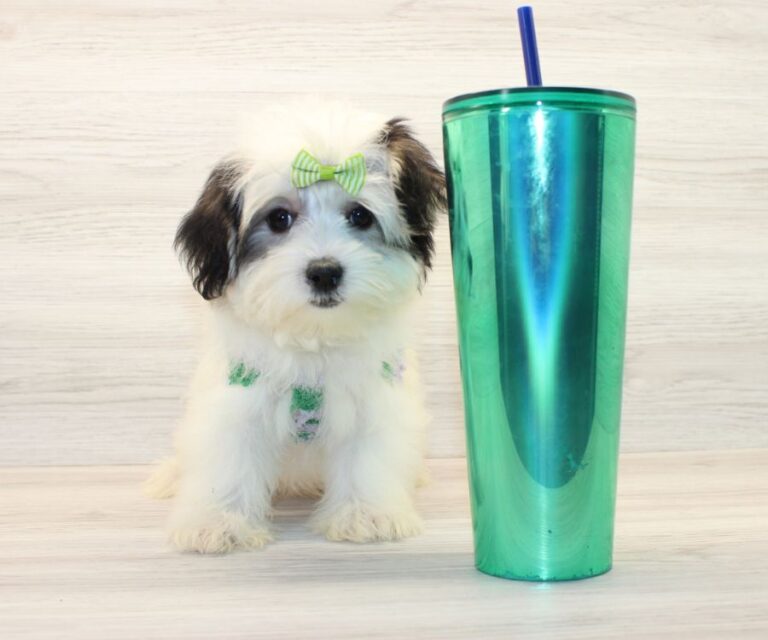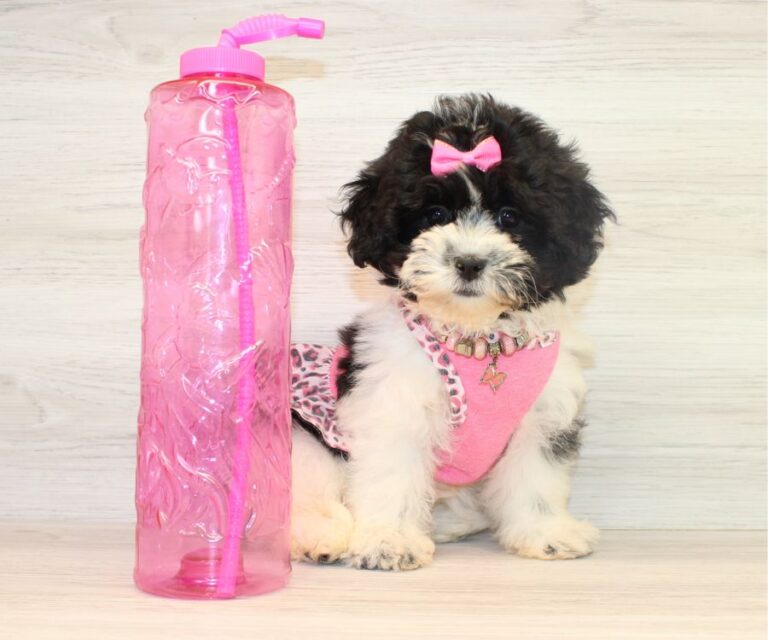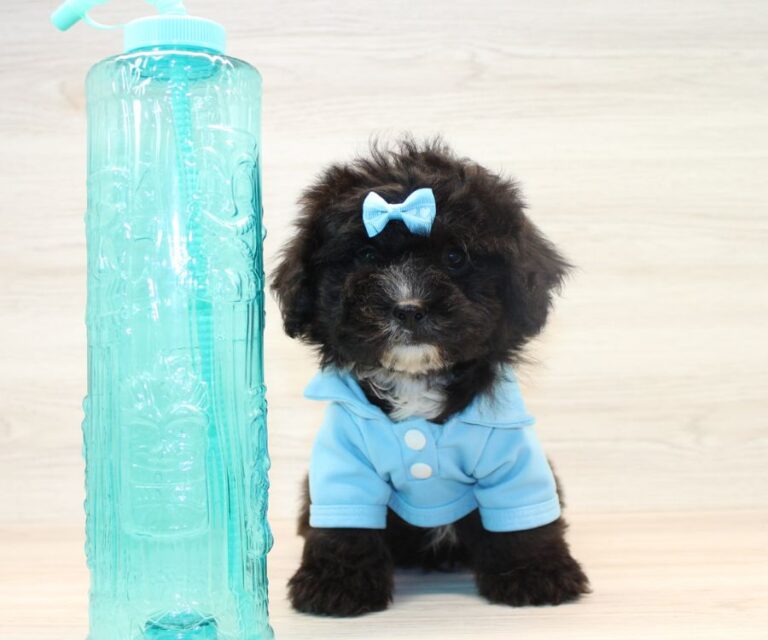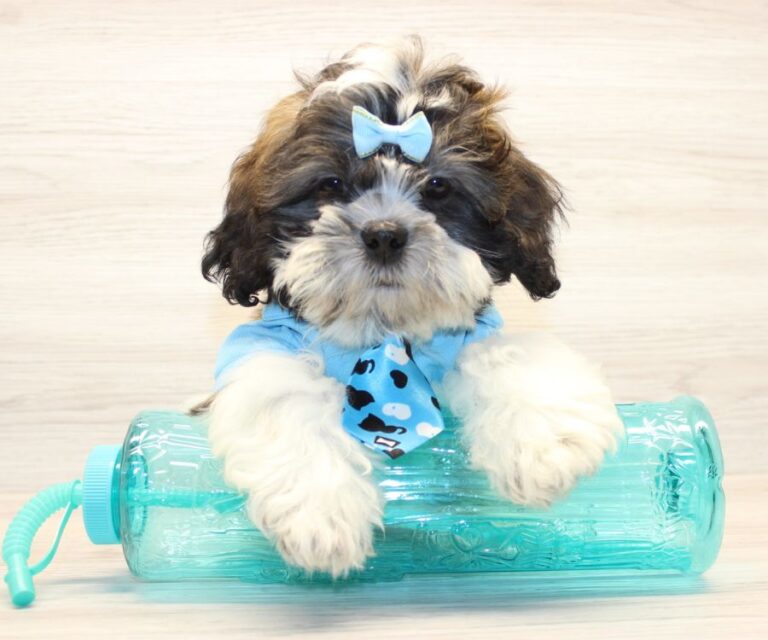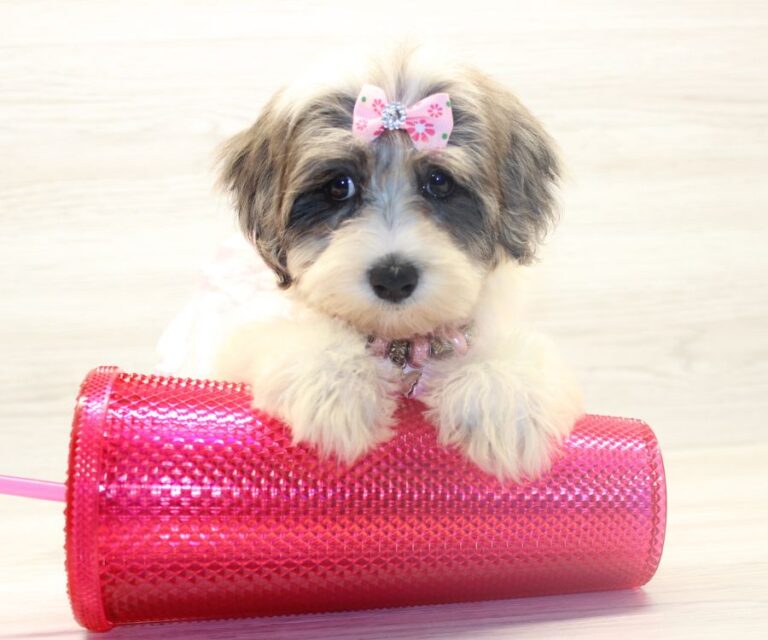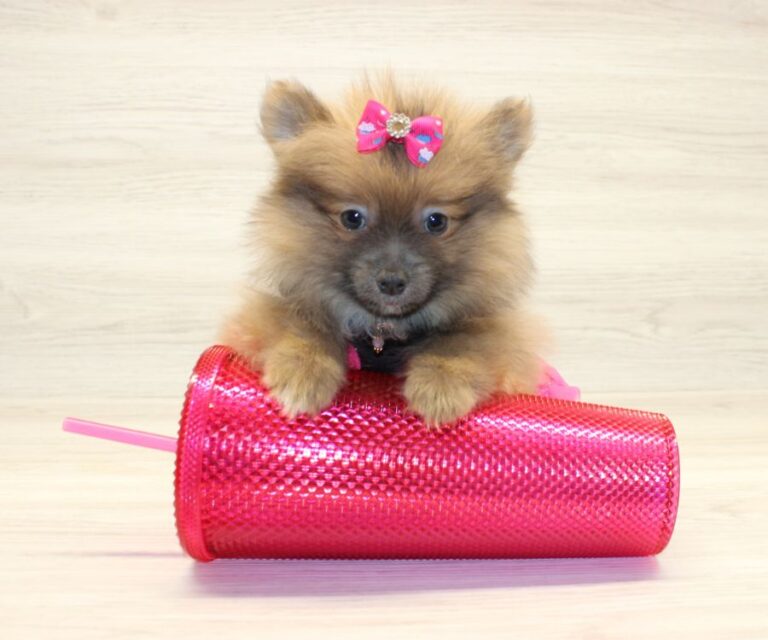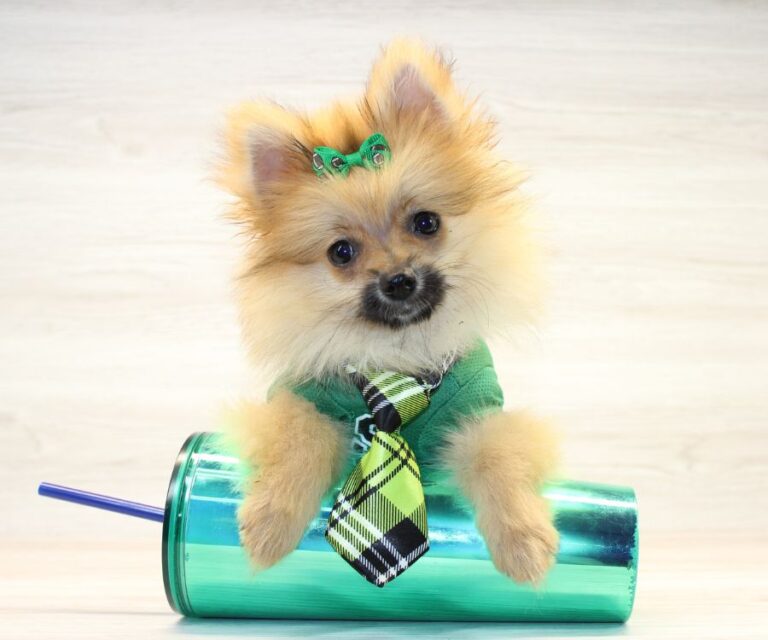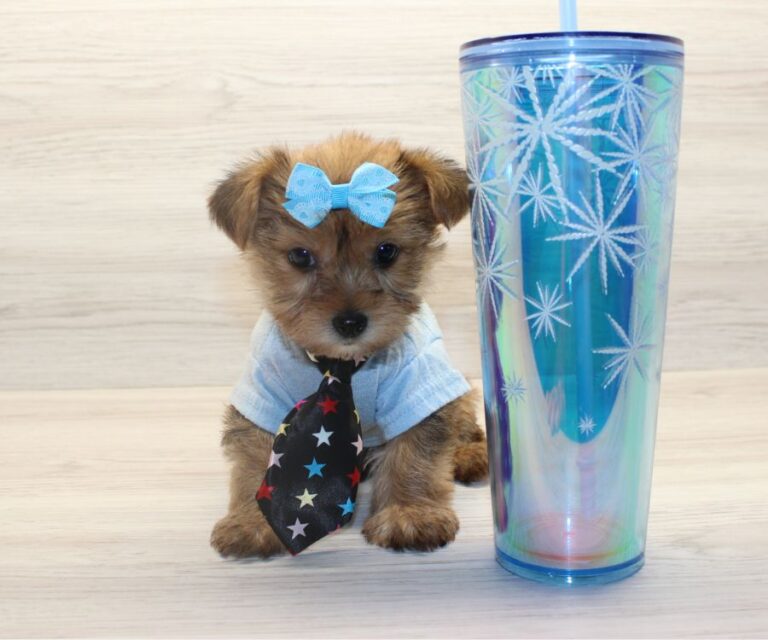If you’re looking for Toy & Teacup puppies in Deer Park, TX, check out Puppyheaven.com. They offer a selection of popular breeds like Chihuahuas, Pomeranians, and Yorkshire Terriers, perfect for smaller living spaces. These breeds require careful grooming and are prone to specific health issues such as dental problems and hypoglycemia, making regular vet check-ups crucial. Puppyheaven guarantees that each puppy comes from certified breeders who adhere to the highest standards of health and ethics. They also provide guidance on socializing, feeding, and nutrition suited to these tiny companions. Exploring this further could enrich your journey as a potential pet owner.
Why Choose Toy & Teacup Puppies?
Choosing toy and teacup puppies offers you the advantage of a pet that fits comfortably into smaller living spaces. When you’re considering bringing a new pet into your home, it’s important to assess the space requirements associated with different breeds. Toy and teacup puppies, renowned for their diminutive size, require much less space than their larger counterparts. This aspect is particularly beneficial if you reside in an apartment or a home with limited square footage.
The size benefits of toy and teacup puppies extend beyond mere space considerations. Smaller dogs are easier to manage and transport, making them ideal companions for individuals who lead active, mobile lifestyles. You’ll find that these pint-sized pets are easier to maneuver in crowded spaces—an important factor if you frequently travel or enjoy outings.
Moreover, the maintenance associated with toy and teacup puppies can be less challenging. Their smaller stature means they consume less food and produce less waste, which can also translate into lower living costs over the pet’s lifetime. For someone dedicated to serving others, choosing a breed that aligns with such practical and financial efficiencies allows more resources and time to be directed toward charitable endeavors or community service.
Popular Breeds in Deer Park
When selecting your next puppy in Deer Park, TX, you’ll discover that certain toy and teacup breeds stand out due to their size and adaptability.
It’s vital to take into account specific health issues that may affect these smaller breeds, ensuring you’re prepared for any special care they might require.
Additionally, understanding which breeds enjoy greater popularity locally can help you connect with community resources and support networks for your new pet.
Top Small Breed Choices
You’ll frequently find that Chihuahuas, Pomeranians, and Yorkshire Terriers are among the most popular small breed dogs in Deer Park, TX.
Originating from Mexico, Chihuahuas are recognized for their diminutive size and spirited demeanor, requiring minimal grooming due to their short coats.
Pomeranians, with their roots in Central Europe, boast a fluffy double coat that necessitates regular grooming to maintain peak condition and appearance.
Yorkshire Terriers, hailing from England, are equally admired for their compact size and silky, fine hair, which demands consistent grooming to prevent tangles and maintain health.
Each breed’s grooming needs are essential for their well-being, aligning with your commitment to nurturing and caring for these small companions.
Breed Health Considerations
While grooming is important for your pet’s appearance, it’s also imperative to take into account the specific health issues associated with breeds like Chihuahuas, Pomeranians, and Yorkshire Terriers in Deer Park, TX. These breeds often have genetic predispositions that can impact their overall health and lifespan.
For instance, Chihuahuas are prone to heart problems and patellar luxation, while Pomeranians can suffer from dental issues and collapsed trachea. Yorkshire Terriers often face challenges with hypoglycemia and delicate digestive systems. It’s essential you’re aware of these conditions to manage their health proactively.
Regular veterinary check-ups, tailored diets, and appropriate exercise are essential to mitigate these risks and enhance their lifespan. Remember, understanding these predispositions can dramatically improve the quality of care you provide.
Local Breed Popularity
Certain dog breeds have soared in popularity among Deer Park residents, reflecting broader national trends. You’ll find that the breed history of these dogs often influences their adoption rates.
For example, breeds with a history as companion animals typically see higher demand in residential areas like Deer Park. The Pomeranian and Chihuahua, breeds known for their small size and adaptability to indoor living, have particularly high adoption rates here. This trend is underpinned by their suitability for smaller living spaces, a common characteristic of urban environments.
When you’re considering adopting, it’s essential to understand the breed’s background to ensure it aligns with your capacity to provide care, thereby serving the needs of both the animal and the community effectively.
Health Considerations
Before deciding to purchase a toy or teacup puppy in Deer Park, TX, it’s important to understand the specific health issues associated with these small breeds. Due to their diminutive size, these pups often come with genetic predispositions that necessitate frequent and sometimes costly veterinary care.
Here are three critical health considerations you need to be aware of:
Fragility and Injury Risk: Their small bones and delicate structure make toy and teacup puppies particularly susceptible to injuries from falls or rough handling. It’s imperative to handle them with utmost care to prevent any accidental harm.
Dental Problems: Due to their compact jaw size, these puppies often suffer from dental crowding, leading to increased risk of periodontal disease. Regular dental check-ups and cleanings are essential to maintain their oral health and prevent secondary infections.
Hypoglycemia: Toy and teacup breeds are prone to low blood sugar levels, especially in stressful situations or if not fed regularly. Symptoms include lethargy and shivering, which require immediate attention to prevent serious complications.
Understanding these health issues is vital for providing the necessary care and potentially saving on veterinary costs in the long run. Your awareness and proactive management can ensure a healthier life for your tiny companion.
Training Your Miniature Pup
Training your miniature pup requires understanding the essential training basics that lay the foundation for their behavior.
You’ll need to employ specific behavioral tips and tricks to address the unique challenges posed by their small size and distinct personalities.
Additionally, early and consistent socialization is vital to guarantee your teacup or toy puppy grows into a well-adjusted, sociable adult dog.
Essential Training Basics
Starting with basic commands, you’ll find that training your miniature pup demands patience and consistency to guarantee effective learning. Establishing a clear and consistent potty schedule is essential. This not only helps in house training but also instills a routine that your pup can rely on. Maintaining command consistency is equally important; it ensures your dog understands what’s expected without confusion.
Here are three key training basics to focus on:
Establish Potty Schedules: Set specific times for your pup to go outside. This helps prevent accidents and builds routine.
Maintain Command Consistency: Use the same words and tone for commands to facilitate quicker learning.
Gradual Progression in Training: Start with simple commands and slowly introduce more complex tasks to keep your pup engaged and progressing.
Behavioral Tips & Tricks
To effectively address behavioral challenges in your miniature pup, it’s important to employ specific training techniques tailored to their unique needs and temperament. Establishing a consistent sleep schedule is vital. It assists in setting a biological rhythm, which can greatly reduce anxiety and hyperactivity, fostering a calm demeanor.
Additionally, effective noise management plays a pivotal role in your pup’s behavior training. Introduce controlled noise levels gradually to acclimatize your puppy to various sounds, thereby preventing noise phobia or stress-related reactions. This methodical approach not only enhances their adaptability but also guarantees they remain composed in diverse environments.
Socializing Your Miniature Pup
Socializing your miniature pup effectively requires introducing them to a variety of people, places, and other animals from an early age. This meticulous process is essential for their development and ensures they grow into well-adjusted adult dogs.
Here are key strategies to take into account:
Puppy Parties: Organize or attend puppy parties that allow your pup to interact with other dogs in a controlled, safe environment. This exposure is important for their social skills.
Handling Exercises: Regularly practice gentle handling exercises with your pup. Include touching their paws, ears, and mouth to prepare them for vet visits and grooming.
Diverse Environments: Take your pup to different settings like parks, pet-friendly stores, and quiet streets to acclimate them to various sights and sounds.
Following these guidelines will greatly aid in nurturing a sociable and confident pet.
Feeding and Nutrition Tips
When feeding toy and teacup puppies, it’s vital to choose a diet that supports their rapid growth and unique dietary needs. You must be diligent about dietary allergies which can manifest early in these small breeds. Ingredients such as chicken, beef, corn, or wheat can trigger allergic reactions, presenting as skin irritations or gastrointestinal upset. Opt for hypoallergenic formulas with novel proteins like lamb or duck and easily digestible carbohydrates like sweet potatoes.
Meal timing also plays an important role in their health and energy levels. Due to their small size, toy and teacup puppies are prone to hypoglycemia. Feeding them smaller, more frequent meals helps maintain their blood sugar levels consistently. Aim for feeding them four to six small meals a day, depending on their age, weight, and activity levels.
Moreover, make sure that the food you choose is specifically formulated for small breed puppies. This food is denser in nutrients and smaller in kibble size, making it easier for their tiny mouths to manage. Always ensure fresh water is available, as proper hydration is integral to their overall health.
Finding the Right Breeder
Selecting a reputable breeder is essential for guaranteeing the health and well-being of your toy or teacup puppy. When undertaking this important decision, you’ll want to make sure that the breeder adheres strictly to ethical practices and holds necessary breeder certifications. This not only supports responsible breeding but also ensures that the puppies receive the highest standard of care before they find their forever homes.
Here are three critical steps to guide you in choosing the right breeder:
Verify Breeder Certifications: Check if the breeder has been certified by recognized institutions. These certifications indicate that the breeder meets specific standards in the care and breeding of puppies, ensuring they’re healthy and well-socialized.
Assess Ethical Practices: Ensure the breeder follows ethical breeding practices, including proper health testing of breeding pairs, adequate living conditions, and transparent health records for all puppies.
Visit the Breeding Facility: Personally visiting the site can provide you with firsthand insight into the breeder’s operations. Look for cleanliness, spacious environments, and the overall health and demeanor of the puppies and their parents.
Bringing Your Puppy Home
After selecting the right breeder, it’s important to prepare for the arrival of your toy or teacup puppy to guarantee a smooth shift into its new home. Begin with puppy proofing your environment to make sure it’s safe and conducive for a small, curious animal. Remove any small objects that could be swallowed, secure loose wires, and block off spaces where your puppy could get stuck. It’s also essential to eliminate any toxic plants and make sure all harmful chemicals are out of reach.
Travel safety is another key area that demands your attention. When transporting your new puppy home, always use an appropriate-sized carrier. This protects the puppy in case of sudden stops and provides a secure space that reduces stress during the journey. Ensure the carrier is well-ventilated, stable, and placed in a temperature-controlled part of the vehicle. Never leave your puppy alone in the car, especially in extreme weather conditions.
Upon arrival, introduce your puppy to its new environment gradually. Establish a designated area with a comfortable bed and easy access to water. This helps in creating a safe haven for your puppy to retreat to as it adapts to its new surroundings. Remember, patience is key during this important period.
Conclusion
As you bring your new toy or teacup puppy home, remember to prioritize their health with regular veterinary care and provide a balanced diet tailored to their diminutive size.
Prioritize gentle, consistent training to help them integrate smoothly into your family. Choosing a reputable breeder from Deer Park is essential; they should offer transparency and support.
With the right care and attention, your tiny companion will thrive, bringing joy and affection to your life.
